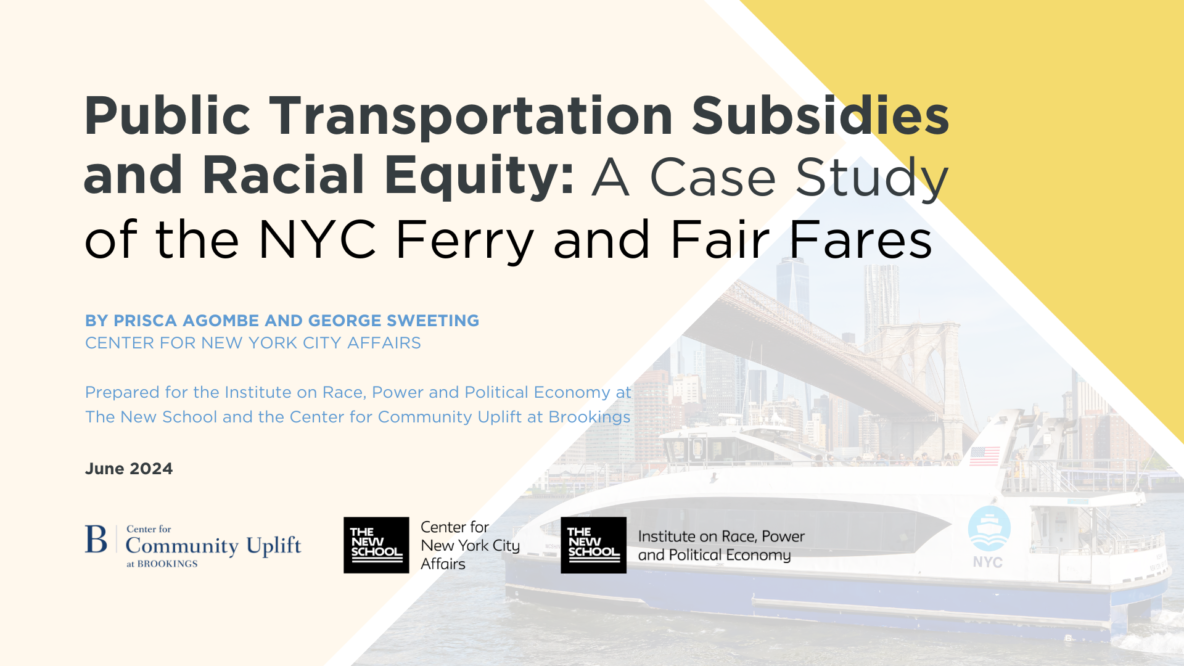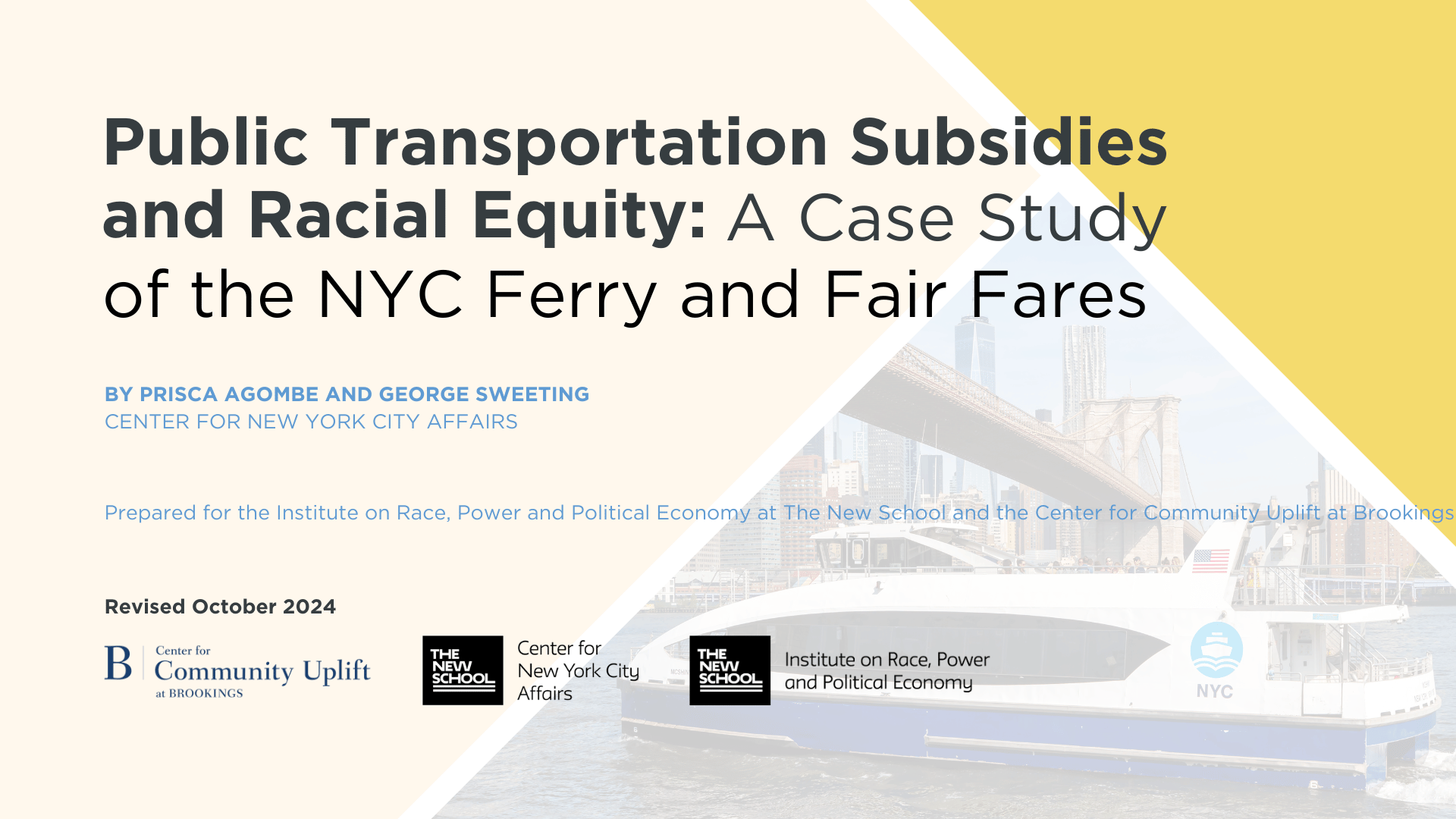Produced by the Center for New York City Affairs at The New School in partnership with the Institute on Race, Power, and Political Economy and the Center for Community Uplift as a part of the Equity Scoring Project, this report demonstrates how local governments can apply a racial equity analysis to their public transportation subsidies to surface potential inequities and inform more equitable decision making going forward.
The report examines local subsidies across New York City’s ten transit systems by race and income, honing in on inequities between the Fair Fares reduced fare program for the MTC subway and bus riders and the subsidies applied to the NYC Ferry service. While Fair Fares aims to alleviate the financial burden for low-income commuters who are predominantly people of color, the NYC Ferry service receives significantly deeper per-trip subsidies, disproportionately benefitting higher-income and predominantly White commuters.
The analysis suggests that a proposed increase in the eligibility ceiling for Fair Fares to 200 percent of the federal poverty line from the current 120 percent would help address this disparity in alignment with changes to the City’s charter adopted by voters in November 2022 to advance equity throughout governance.


